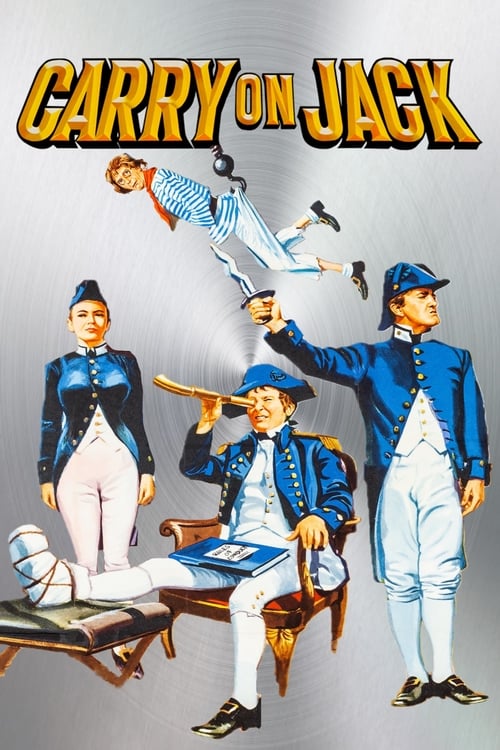With Carry On Jack, the series seems to take a cautious step back on track. We are back in color (thankfully), dialed-down considerably on politics, and for the first time in period costume. Of the regulars we have only Kenneth Williams, Charles Hawtrey, and and Jim Dale — and Dale only for a scene or two. Fortunately, the starring cast is rounded out capably by Bernard Cribbins (who will be very familiar to 21st Century Doctor Who fans and 20th Century Doctor Who completists) and Juliet Mills, older sister of Disney star Hayley Mills.
Albert Poop-Decker (Cribbins), a naïve and newly raised midshipman, stops by a bar on his way to report for duty where through typical plot devices he ends up unconscious on the floor while barmaid Sally heads off to his ship in his uniform, in search for her long-lost fiancé. When Albert comes to, he is promptly press-ganged into service on the very ship he was supposed to be an officer on, but since Sally is there wearing his uniform and using his name, he finds it difficult to convince anyone he is actually an officer.

Without giving too much detail of the plot, there’s incompetence, mutiny, gender confusion, pirates, and a battle at sea where the good guys win primarily by accident.
According to Joan Sims’s memoir, the Carry On period pieces mostly came about as a way to recycle sets and costumes from other, more expensive films. It was a good decision for other reasons; the series was certainly at risk of becoming stale making fun of different professions. Moving on to new settings and new time periods broadens the palette a bit.
Not that screenwriter Talbot Rothwell does much with it. Rothwell was also responsible for the dreary and overly-political Carry On Cabby, but this time he takes a much lighter touch and steers the ship safely away from political reefs. That said, most of the humor is either physical or situational; the clever banter and innuendo that characterizes later films is practically absent. Usually there’s some dialogue that strikes me funny and I make a note of it. This film, though, while entertaining in the moment, fails to leave much of an impression.

Cribbins has good comic timing and a rubber face, and Mills is capable enough, but the joy and spark of the ensemble cast are missing. Williams and Hawtrey — who often play off each other fantastically — are often in frame together but rarely interact. This is a half-baked cake.

